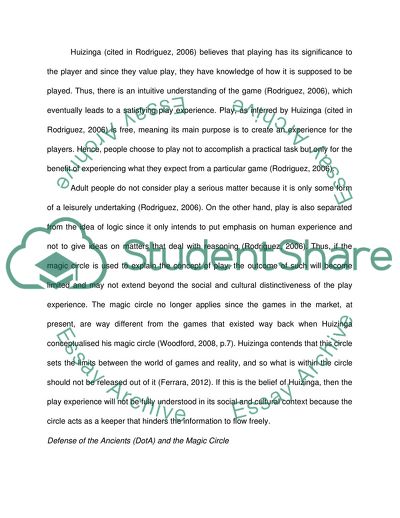Cite this document
(Using Huizingas Magic Circle in Understanding the Social and Cultural Article, n.d.)
Using Huizingas Magic Circle in Understanding the Social and Cultural Article. https://studentshare.org/social-science/1778181-multimedia
Using Huizingas Magic Circle in Understanding the Social and Cultural Article. https://studentshare.org/social-science/1778181-multimedia
(Using Huizingas Magic Circle in Understanding the Social and Cultural Article)
Using Huizingas Magic Circle in Understanding the Social and Cultural Article. https://studentshare.org/social-science/1778181-multimedia.
Using Huizingas Magic Circle in Understanding the Social and Cultural Article. https://studentshare.org/social-science/1778181-multimedia.
“Using Huizingas Magic Circle in Understanding the Social and Cultural Article”. https://studentshare.org/social-science/1778181-multimedia.


